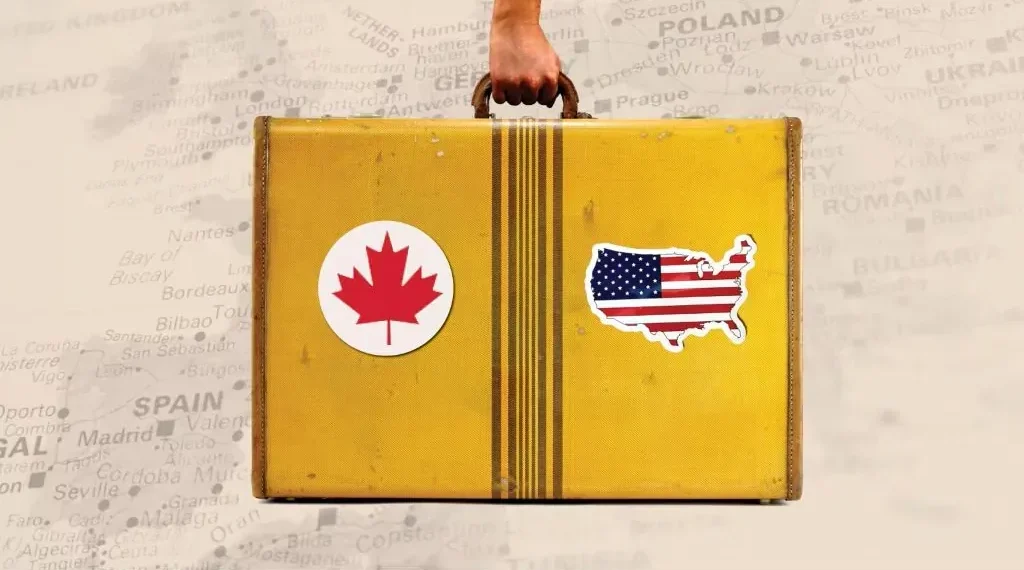“You always hear Americans before you see them,” said Denisa Podhrazska, founder of Let Me Show You London. “They’re friendly but loud. Canadians are more subtle and don’t stand out as much.”
In Paris, Bertrand d’Aleman of My Private Paris Tours shared a similar view. “Canadians usually make it known immediately that they’re Canadian. They do it to avoid being confused with Americans,” he said.
Both guides note that every nationality has its quirks, but cultural habits and conversational styles tend to reveal one’s origin faster than any passport could.
Behavior Speaks Louder Than Accent
Research supports those observations. Kim Dae-young, professor of hospitality management at the University of Missouri, said his studies show that a traveler’s nationality influences their behavior abroad.
“When individuals visit countries they perceive as more advanced, they’re less likely to act out,” Kim said. “But when they travel to places they consider less developed, they tend to display more misbehavior.”
In surveys, Americans admitted they were more likely to litter or act informally in Southeast Asia than in Western Europe. The findings, Kim said, highlight how perception of status affects traveler conduct.
Americans Are Direct, Canadians Are Subtle
Industry experts say personality differences between American and Canadian tourists are easily recognizable.
Leigh Barnes, president for the Americas at Intrepid Travel, said, “Americans are louder, more curious, and more direct. Canadians are calmer and less likely to complain openly.”
Barnes added that Americans prefer structure and detailed planning, while Canadians are more open to spontaneity.
Podhrazska noted another giveaway: “Americans love ‘skip-the-line’ experiences. They’ll pay extra to avoid queues — something you rarely see with Canadians.”
Different Perspectives Abroad
Some American tourists also expect familiarity when traveling, which can cause cultural friction.
Charley Harrison, founder of Totally Tailored Tours in London, said many U.S. travelers assume their norms are universal. “They expect to pay with U.S. dollars or think that others have accents — not them,” she said.
Canadian content creator Stewart Reynolds, known as Brittlestar, believes the distinction is cultural at its core. “Canadians generally look out for the group, while Americans prioritize individuality,” he said.
He joked that Canadian winters may explain this collective mindset. “Everyone’s needed to help push a car out of a snowbank at some point. Cooperation becomes part of who you are.”
Confidence vs. Collectivism
For travelers like Shankar, who grew up American but now lives in Canada, the difference comes down to confidence and self-expression.
“In the U.S., confidence is celebrated — people are raised to speak boldly,” she said. “Canadians tend to blend in and adapt to their environment.”
That distinction, she added, explains why Americans pretending to be Canadian rarely succeed. “It’s not just about accent. It’s about how you occupy space — your energy and presence.”
Respect Over Pretense
Experts agree that nationality matters less than attitude when traveling.
“If you’re respectful of local customs, polite, and curious, people respond positively,” said Barnes. “It’s not about where you’re from. It’s about how you behave.”
In other words, while some Americans may believe adopting a Canadian identity earns them better treatment abroad, the truth is simpler: good manners travel further than any flag ever could.
This article was rewritten by JournosNews.com based on verified reporting from trusted sources. The content has been independently reviewed, fact-checked, and edited for accuracy, neutrality, tone, and global readability in accordance with Google News and AdSense standards.
All opinions, quotes, or statements from contributors, experts, or sourced organizations do not necessarily reflect the views of JournosNews.com. JournosNews.com maintains full editorial independence from any external funders, sponsors, or organizations.
Stay informed with JournosNews.com — your trusted source for verified global reporting and in-depth analysis. Follow us on Google News, BlueSky, and X for real-time updates.













